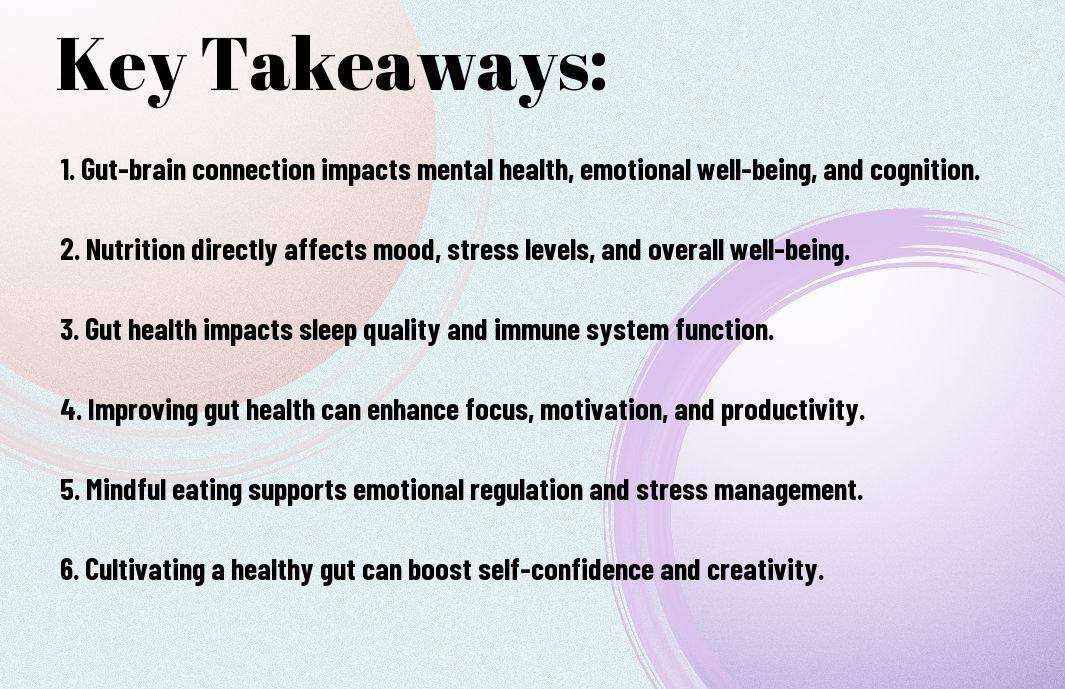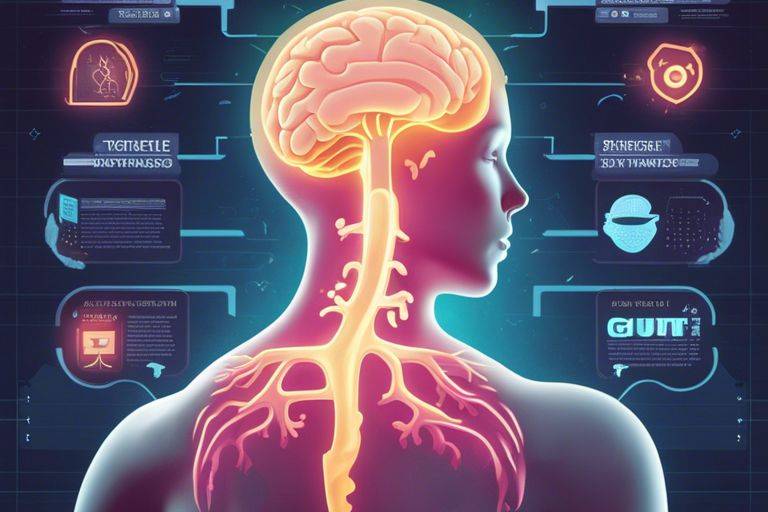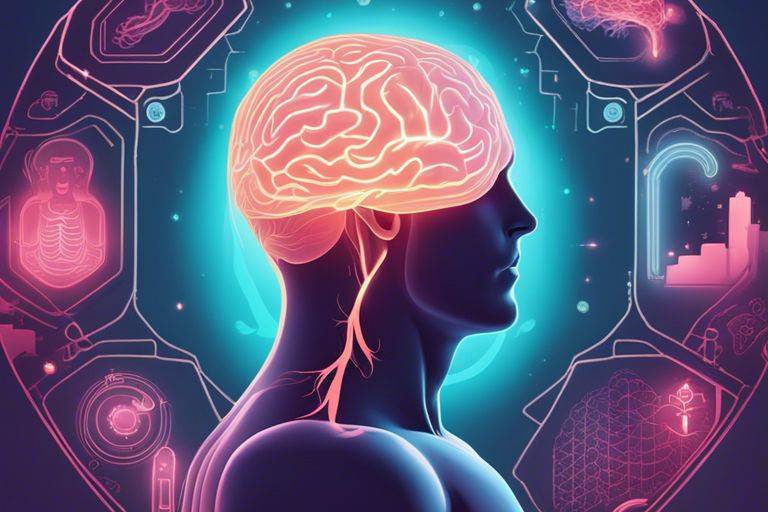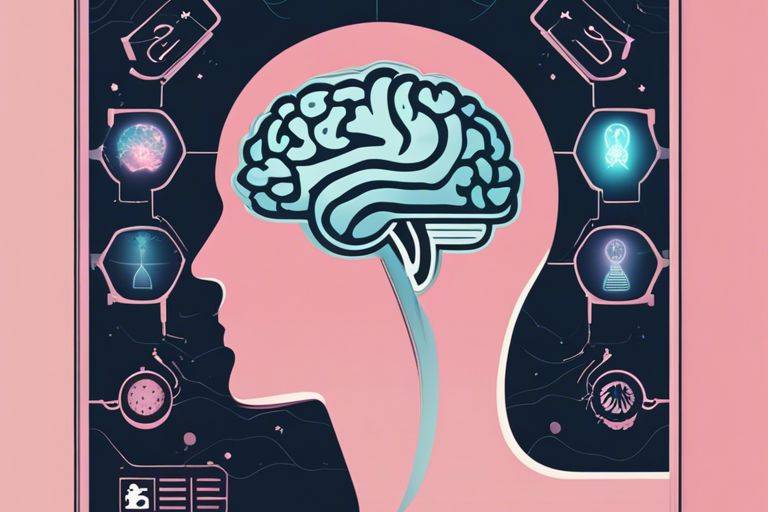Transform Your Personal Development
Development of personal skills and growth is important for living a fulfilling life. In recent years, there has been a growing focus on the concept of the second brain and its impact on personal development. The idea that our gut functions as a second brain is not only fascinating but has the potential to transform the way we approach self-improvement.
Key Takeaways:
- Gut-Brain Connection: Understand the powerful connection between your gut and brain for overall well-being and personal development.
- Emotional Resilience: The second brain can influence your mood, stress levels, and emotional health, impacting your personal growth journey.
- Healthy Gut, Healthy Mind: Nourish your gut with a balanced diet to support mental clarity, focus, and cognitive function.
- Intuitive Decision-Making: Listen to your gut instincts as they are often tied to your second brain’s signals guiding you in personal development choices.
- Self-Care Practices: Incorporate gut-friendly activities like meditation, yoga, and mindfulness to enhance your second brain’s health and support personal growth.
- Connection to Others: Building strong gut health can also improve your social interactions and relationships, vital for personal development.
- Holistic Approach: Embrace a holistic approach to personal development that includes nurturing your second brain alongside mental and emotional well-being.

Understanding the Second Brain
Assuming you’ve heard about the concept of the second brain, you might wonder what exactly it is and how it can impact your personal development. Well, let’s examine into this fascinating topic and explore its potential to transform your life.
The Science Behind the Second Brain
With recent research shedding light on the enteric nervous system, often referred to as the “second brain,” we now understand that the gut houses millions of neurons that communicate with the brain. This intricate network plays a significant role in regulating digestion, mood, and even influencing our decision-making process. The connection between the gut and brain is bidirectional, as both organs send signals back and forth, impacting our overall well-being.
How the Second Brain Influences Your Wellbeing
Your gut health has a profound impact on various aspects of your life, including your mood, energy levels, and cognitive function. Imbalances in the gut can lead to issues like anxiety, depression, and fatigue, affecting your overall quality of life. By nurturing your second brain through a balanced diet, regular exercise, and stress management techniques, you can enhance your mental and emotional well-being.
Second brain health is not just crucial for digestive health but can also influence your immune system and overall resilience to stress. By prioritizing your gut health, you can empower yourself to lead a more fulfilling and balanced life.
The Gut-Brain Connection
All too often, we view the brain and the gut as two separate entities, but they are actually closely interconnected. The concept of the “second brain” emphasizes this connection, highlighting the complex network of neurons lining the gastrointestinal tract, known as the enteric nervous system. This system plays a crucial role in communicating with the brain and influencing various aspects of our mental and emotional well-being. Curious to learn more about the “Second Brain” trope? What are your thoughts about the “Second Brain” Trope?
Communication Between Your Two Brains
Any disruption in the communication between your two brains can lead to issues such as stress, anxiety, or even depression. By fostering a healthy gut environment through proper diet, adequate hydration, and stress management techniques, you can positively impact this intricate connection. Paying attention to your gut health is not just about digestion; it’s about supporting your overall well-being.
The Impact of Gut Health on Mental Clarity
Between a foggy mind and clear, focused thinking lies the state of your gut health. The food you eat directly affects the composition of your gut microbiota, which in turn influences neurotransmitter production and brain function. Ensuring a diverse and balanced diet rich in fiber, probiotics, and prebiotics can enhance cognitive function, mood regulation, and overall mental clarity.
GutBrain: Cultivating a healthy gut-brain axis can lead to improved mood, sharper cognitive abilities, and a stronger resilience to stress. Prioritize your gut health to optimize your brain function and elevate your personal development journey.
Techniques to Harness Your Second Brain
Mindfulness Practices for Gut-Brain Harmony
To achieve harmony between your gut and brain, incorporating mindfulness practices into your daily routine can be incredibly beneficial. With practices such as meditation, deep breathing exercises, and yoga, you can tune into your body’s signals and better understand the connection between your thoughts and your gut. By paying attention to how your gut feels in different situations, you can become more attuned to the messages it is sending you and make more informed decisions based on this feedback.
Dietary Shifts for Optimal Brain Function
Shifts in your diet can have a profound impact on the function of your second brain. By incorporating more whole foods rich in fiber, such as fruits, vegetables, and whole grains, you can support a healthy gut microbiome that is necessary for optimal brain function. Additionally, reducing your intake of processed foods and sugars can help maintain a balanced gut environment and improve overall brain health.
Opting for nutrient-dense foods like fatty fish, nuts, seeds, and leafy greens can provide necessary vitamins and minerals that support neurotransmitter production and overall brain function. By fueling your body with the right nutrients, you can enhance the communication between your gut and brain, leading to improved mental clarity, mood stability, and cognitive function.
Harness the power of your second brain by implementing these practices and dietary shifts into your daily life. Your gut-brain connection plays a significant role in your overall well-being, and by prioritizing its health, you can transform your personal development journey for the better.

Organizing Your Life with the Second Brain Approach
Prioritizing Tasks Through a New Lens
For a long time, we have been taught to prioritize our tasks based on urgency or deadlines. However, with the Second Brain concept, we can approach task prioritization in a more holistic way. Instead of simply focusing on what needs to be done first, consider how each task aligns with your long-term goals and personal values. By shifting your perspective, you can ensure that you are not just staying busy but working towards a meaningful and fulfilling life.
Creating a Personal Development Plan
Prioritizing personal development is key to living a purposeful life. With the Second Brain approach, creating a personalized development plan becomes more manageable and effective. Start by identifying areas of improvement or goals you want to achieve. Break down these larger objectives into smaller, actionable steps. By outlining your plan in detail and breaking it down into smaller tasks, you can track your progress more effectively and stay motivated along the way.
To enhance the effectiveness of your personal development plan, consider setting specific timelines for each task and regularly reviewing your progress. Seek feedback from mentors or peers to gain valuable insights and stay accountable to your goals. Do not forget, personal growth is a journey, and the Second Brain approach can help you navigate it with clarity and purpose.
Emotional Regulation and the Second Brain
Now, let’s look into the fascinating connection between our emotions and our second brain, the gut.
Understanding Your Emotions through the Gut-Brain Axis
Brain research has shown that the gut-brain axis, the direct communication pathway between the gut and the brain, plays a crucial role in emotional regulation. The enteric nervous system in the gut is connected to the central nervous system and produces many of the same neurotransmitters that regulate mood and emotions, such as serotonin and dopamine. This means that our gut health can directly impact our emotional well-being.
Strategies for Emotional Balance
For maintaining emotional balance, it’s important to pay attention to your gut health. Eating a balanced diet rich in fiber, fermented foods, and probiotics can support a healthy gut microbiome, which in turn can positively influence your mood. Additionally, practicing stress-reducing techniques such as meditation, yoga, or deep breathing exercises can help regulate the gut-brain axis and promote emotional stability.
Another important aspect of emotional balance is regular physical activity. Exercise has been shown to release endorphins, the body’s natural mood elevators, which can reduce stress and anxiety while enhancing overall emotional well-being.
The Role of Probiotics and Prebiotics
Nurturing Your Second Brain with Probiotics
After understanding the importance of our “second brain” in personal development, it’s crucial to explore how we can nurture it. One key way is through the use of probiotics, which are live bacteria and yeasts that are good for your digestive system. These friendly bacteria help maintain a healthy balance in your gut microbiome, which in turn can positively impact your mood, cognition, and overall well-being.
The Benefits of Prebiotics in Personal Development
On the other hand, prebiotics are a type of fiber that act as food for probiotics, helping them thrive and multiply in your gut. By incorporating prebiotic-rich foods such as bananas, oats, and garlic into your diet, you can support the growth of beneficial bacteria in your gut. This can lead to improved digestion, enhanced immunity, and better mental clarity.
Nurturing your gut health with prebiotics is important for cultivating a thriving ecosystem of beneficial bacteria in your second brain. By incorporating a variety of prebiotic-rich foods into your meals, you can support the growth of these friendly bacteria and promote a balanced gut microbiome. This can have a positive impact on your overall health and well-being, from improved digestion to better mental health.
Role: Probiotics and prebiotics play a crucial role in nurturing your second brain and supporting your overall personal development journey. By incorporating these gut-friendly elements into your daily routine, you can promote a healthy gut microbiome and improve various aspects of your physical and mental health.

Integrating the Second Brain into Daily Life
For many, the concept of a second brain may seem like a revolutionary idea that can transform personal development. Integrating this powerful concept into your daily life can lead to significant improvements in various aspects of your well-being. Let’s explore some practical ways to incorporate the second brain into your routine to achieve long-term success.
Daily Habits for Long-Term Success
Habits are the building blocks of personal growth and development. Incorporating small, consistent actions into your daily routine can have a significant impact on your overall well-being. Start your day by spending a few moments journaling or meditating to clear your mind and set positive intentions for the day. Fuel your body with nourishing foods, engage in regular exercise, and prioritize adequate rest to support your second brain and overall health.
Realizing Your Potential with Every Meal
Any moment presents an opportunity to enhance your second brain’s function, and mealtime is no exception. Mindful eating practices can not only improve digestion but also have a positive impact on your mental clarity and focus. Be daily intentional with your food choices, opting for whole, nutrient-dense foods that support your gut health. Avoiding processed foods and excessive sugar can help maintain a healthy gut microbiome, ultimately benefiting your second brain and overall well-being.
Summing up
Now that you understand how the second brain concept can transform your personal development, consider diving deeper into this revolutionary approach with the help of Forte Labs’ comprehensive guide on Building a Second Brain: The Definitive Introductory Guide. By implementing strategies such as knowledge management, note-taking, and task organization, you can enhance your creativity, productivity, and overall well-being.
FAQ
Q: What is the second brain concept?
A: The second brain concept refers to the enteric nervous system, a complex network of neurons that line the digestive tract.
Q: How does the second brain impact personal development?
A: The second brain can influence mood, behavior, and cognitive functions, thus playing a significant role in personal development.
Q: What are some ways to nourish the second brain?
A: Consuming a diet rich in whole foods, probiotics, and prebiotics can help support a healthy second brain.
Q: Can the second brain affect mental health?
A: Yes, the second brain communicates with the central nervous system and can impact mental health conditions such as anxiety and depression.
Q: How can I improve my second brain health?
A: Engaging in stress-reducing activities, getting enough sleep, and staying hydrated are all ways to support a healthy second brain.
Q: Are there connections between the second brain and intuition?
A: Some research suggests that the gut-brain axis may play a role in intuitive decision-making, linking the second brain to intuition.
Q: Can the second brain concept benefit personal growth?
A: By understanding and nurturing your second brain, you can enhance your emotional intelligence, resilience, and overall personal growth.
Expand Your Horizon
Unlocking the Zeigarnik Effect: How Bluma Zeigarnik’s Open Tasks Can Skyrocket Your Motivation



